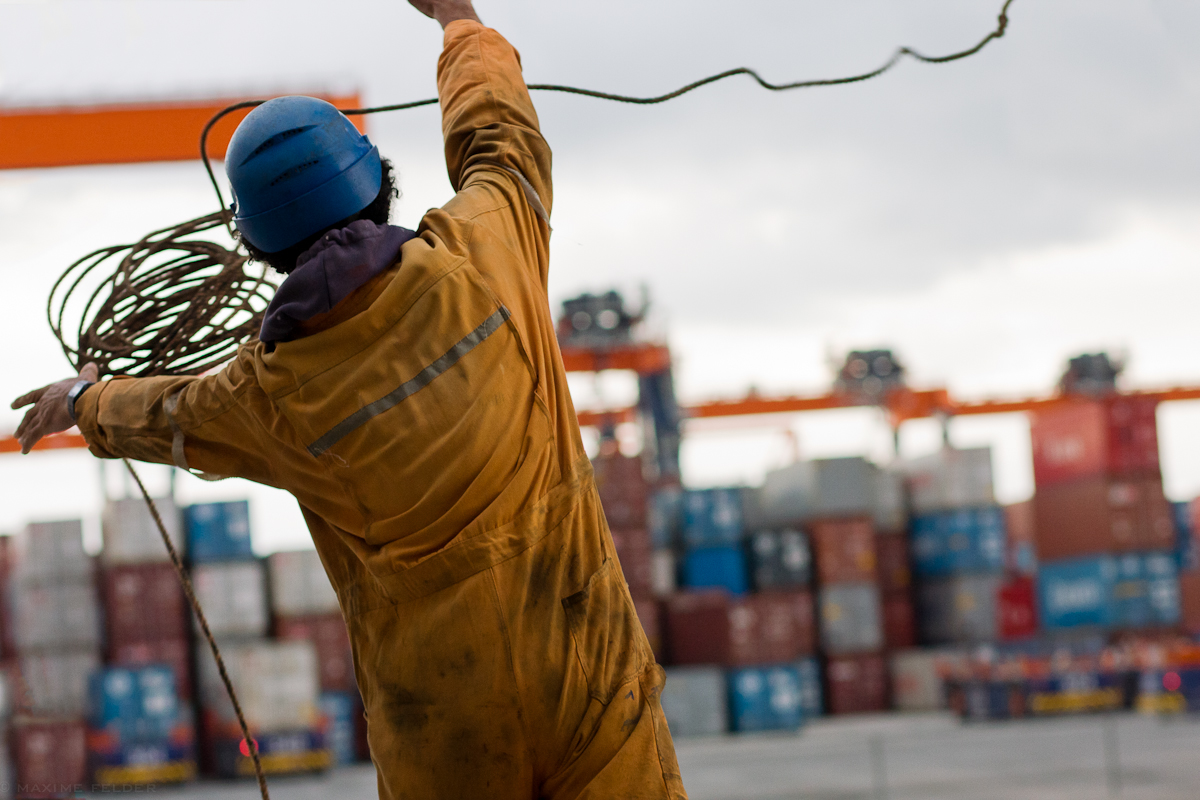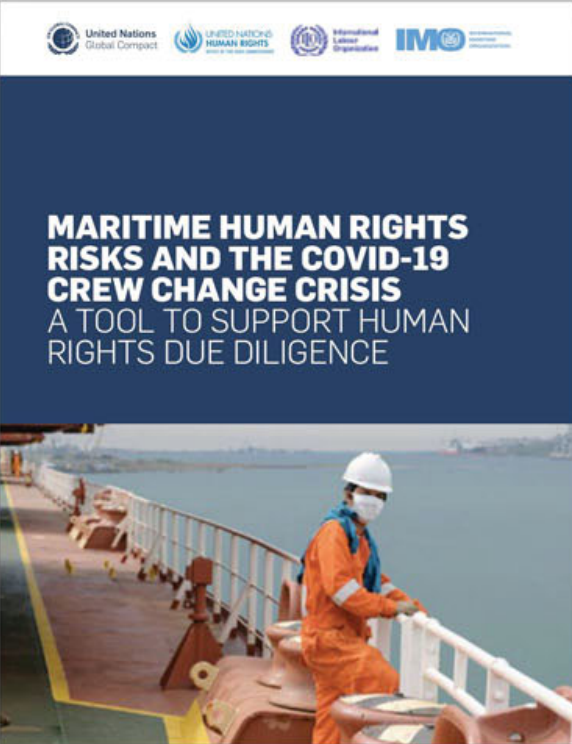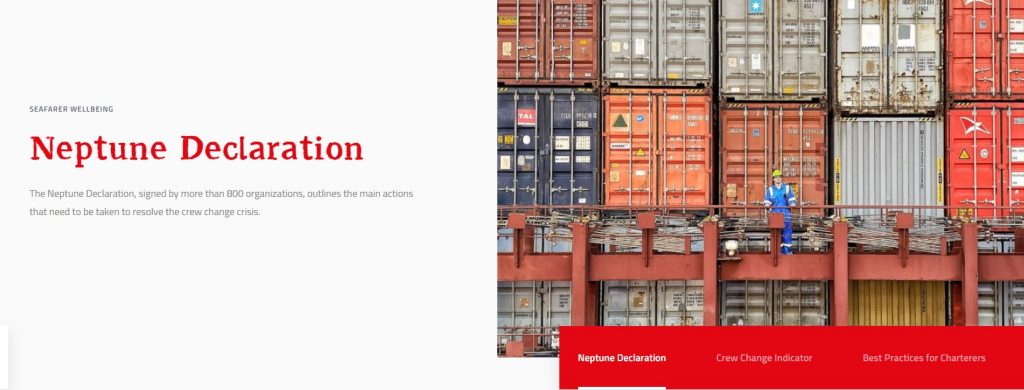
New due diligence tool to help businesses uphold their responsibility to protect human rights at sea as new Covid variants threaten to further delay crew changes
A wide-ranging human rights checklist has been issued to global business enterprises engaged with the maritime industry to protect seafarers stranded on ships due to new Covid-19 variants and government-imposed travel restrictions, under a joint initiative by the UN Global Compact, the UN Human Rights Office, the International Labour Organization (ILO) and the International Maritime Organization (IMO).
The Human Rights Due Diligence Tool, launched on 6 May 2021, helps cargo owners and charterers ask the right questions of suppliers and business partners in their supply chains to ensure seafarers’ human and labour rights are upheld, including to crew change, freedom of movement and freedom from forced labour.
This comes amid concerns that the number of crew stranded working beyond their contracts at sea by Covid-19 restrictions could surge from the current level of 200,000, potentially returning to the peak of 400,000 seafarers at the height of the crew change crisis in September 2020.

New variants from India have also exacerbated the situation as more global ports including China, Hong Kong, and Dubai restrict entry to Indian seafarers, who constitute 15 percent or 234,000 of the world’s seafarers.
Working conditions & seafarers’ rights
IMO and the International Transport Workers’ Federation (ITF) said the new guidance will help ensure that the working conditions and human rights of seafarers are respected and comply with international standards.
“This tool is an important step forward, providing a practical approach for cargo owners, charterers and logistic providers to consider the human rights of seafarers and ensure they are put first and foremost as they work to deliver the goods that people need and want,” said IMO Secretary General, Kitack Lim.
Mr Lim added that the pandemic has led to hundreds of thousands of seafarers being denied repatriation, crew changes, shore leave and ultimately forced to stay working on ships long beyond their contracts.
ITF General Secretary, Stephen Cotton said the launch of the tool “couldn’t be more timely as shipping has been a human rights blind spot for global brands”. He urged companies to understand how they or their partners in their supply chains might be violating human rights.
“no crew change” clauses
According to David Heindel, chair of the ITF Seafarers’ Section, the ITF is still alerted to charterers and sub-charters using “no crew change” clauses and sophisticated means to avoid performing crew changes.
“Companies now have no excuse not to act. The toolkit sets out the questions companies need to be asking those shipping their goods. It makes clear the directives companies can give to suppliers to allow diversions and to ensure that “no crew change” clauses are eradicated from their supply chains.”
The new guidance aims to ensure that seafarers have their rights safeguarded in areas such as physical and mental health, access to family life and freedom of movement. It complements current industry-led collective action, such as the Neptune Declaration on Seafarer Wellbeing, which has been signed by over 800 companies.
Click here for more feature stories in Samudra





